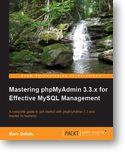As the communication in this case seems to be stuck and the issue is almost one year old, it's time to make bits of it public. The first post will just describe how I've discovered it, later will bring more details.
All started innocently with bug report on Gammu that it fails to work with some Sonim phones. We started to dig some information about what extensions does Sonim use and one of obvious ways was to try their software. I picked up software for Sonim XP3.20 Quest and started to look at it (if you are not going to install them, but want to look, you need unrar and unshield to unpack it). Actually all their software with exception of the one for XP2.10 Spirit is based on same code, so it does not matter that much which one you choose.
At first look the names of DLLs looked familiar to me and running strings on the DLLs just confirmed my suspicion - the phone which is not supported by Gammu bases it's official software on it. I was able to recognize at least seven DLLs derived from (GPL licensed) Gammu (they even use same names as Gammu modules had in that time):
- At.dll
- ATgen.dll
- Common.dll
- FBus.dll
- IRDA.dll
- ObexGen.dll
- Serial.dll
To make the thing more interesting they use several other components released under free software licenses, where they also should provide sources for them:
- ID3LIB.DLL - id3lib (LGPL)
- WbXmlParser.dll- libwbxml (LGPL)
- lame_enc.dll - lame (LGPL)
There might be more, but I did not want to spend more time on deep analysis, because I already had enough information.
